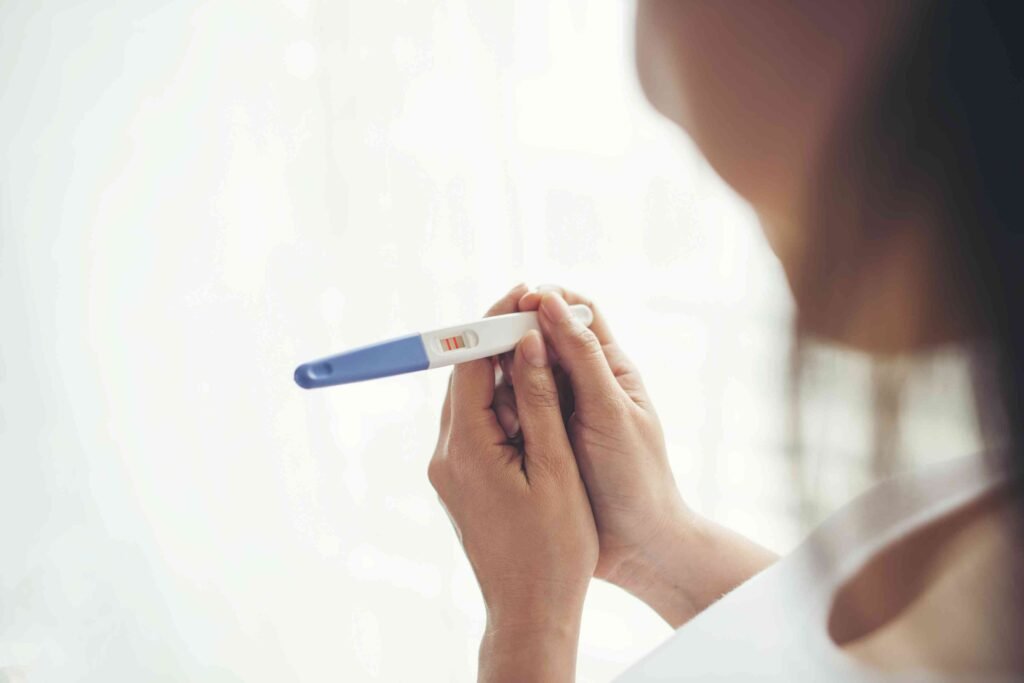Fertility is a journey influenced by a variety of factors, many of which we can control while others are simply part of who we are. For couples trying to conceive, understanding these influences can provide valuable insight into why pregnancy may be taking longer than expected. From lifestyle habits and health conditions to environmental exposures and genetics, several elements play a role in determining whether conception is possible. In this guide, we’ll explore the many factors that affect fertility, helping you better understand the path to parenthood.
Understanding Infertility: An Overview
Let’s understand what infertility is, before diving into specific factors. Infertility is generally defined as the inability to conceive after one year of unprotected sex (or six months if the woman is over 35). While infertility can affect both men and women, it’s often seen as a female-only issue, a misconception that can lead to misunderstandings. In reality, male factors are responsible for about 30% of infertility cases, with female factors accounting for another 30%, and the remaining cases involving combined or unexplained causes.
The complexity of infertility means that identifying the specific reason behind it often requires careful investigation. Understanding the factors that influence fertility can help couples navigate their journey toward conception with a more informed perspective.
Age: One of the Biggest Influencers
Age and Female Fertility
For women, age is one of the most significant factors affecting fertility. Women are born with a finite number of eggs, and the quality and quantity of these eggs decrease as they age. By the time a woman reaches her early 30s, her fertility begins to decline, with a more pronounced decrease after age 35. By the age of 40, the chance of natural conception is significantly reduced.
The reason for this decline is both quantitative and qualitative. As women age, the remaining eggs may have chromosomal abnormalities, increasing the likelihood of miscarriage or conditions like Down syndrome. While many women successfully conceive in their late 30s and early 40s, age remains a critical factor to consider in fertility.

Age and Male Fertility
Though men can remain fertile into their 50s and beyond, age can also impact male fertility. Sperm quality tends to decline over time, with lower sperm motility and an increased risk of DNA damage in sperm as men age. These changes can lead to difficulties in conception and may increase the risk of genetic abnormalities in the child.
Health Conditions Affecting Fertility
Several health conditions can impact fertility, many of which affect either the reproductive organs or hormonal balance. Some of the most common include:
1. Polycystic Ovary Syndrome (PCOS)
PCOS is a common hormonal disorder affecting women of reproductive age. It can lead to irregular menstrual cycles, making it difficult to predict ovulation and increasing the risk of infertility. Women with PCOS often have elevated levels of androgens, which can interfere with the development and release of eggs.

2. Endometriosis
Endometriosis occurs when the tissue that normally lines the uterus grows outside it, often causing painful periods and fertility issues. This condition can lead to scarring, blocked fallopian tubes, and inflammation, which may prevent the egg and sperm from meeting or the embryo from implanting in the uterus.
3. Thyroid Disorders
Thyroid imbalances, whether hyperthyroidism (overactive thyroid) or hypothyroidism (underactive thyroid), can interfere with hormone production and disrupt ovulation. Both conditions can cause irregular menstrual cycles and impact fertility.
4. Uterine Fibroids
Fibroids are non-cancerous growths in the uterus that can interfere with fertility by blocking the fallopian tubes or changing the shape of the uterus, making it more difficult for the embryo to implant. While not all fibroids affect fertility, larger or strategically located fibroids may pose a problem.
5. Male Factor Conditions
Conditions such as varicocele (enlarged veins in the scrotum), low testosterone, or genetic disorders can impact male fertility. These issues can affect sperm count, motility, or morphology, making it challenging for sperm to fertilize an egg.
Lifestyle Choices and Fertility
Lifestyle choices can have a significant impact on fertility. While some factors may seem harmless, over time, they can accumulate and reduce the chances of conception.
1. Diet and Nutrition
A balanced diet plays a crucial role in fertility for both men and women. Certain nutrients, like folic acid, zinc, and antioxidants, support reproductive health and are necessary for healthy sperm and egg development. A diet high in processed foods, sugars, and unhealthy fats, on the other hand, may negatively impact fertility by affecting hormone balance and leading to conditions like obesity.
2. Weight and BMI
Body weight and body mass index (BMI) are closely linked to fertility. Both being underweight and overweight can interfere with hormonal balance. Women with a very low BMI may experience irregular periods or a lack of ovulation, while excess weight can lead to conditions like PCOS and insulin resistance, which can also impact ovulation.
For men, obesity has been associated with lower testosterone levels, reduced sperm quality, and erectile dysfunction, all of which can impact fertility. Maintaining a healthy weight through balanced nutrition and regular exercise is essential for reproductive health.
3. Exercise
Regular physical activity supports overall health, but excessive exercise can have the opposite effect on fertility, particularly in women. High-intensity workouts or excessive training can disrupt menstrual cycles, suppress ovulation, and lower estrogen levels. For men, however, moderate exercise may improve sperm quality, but excessive physical exertion can also lead to hormonal imbalances that affect fertility.

4. Smoking and Alcohol
Smoking has been shown to negatively impact fertility in both men and women. In women, smoking can accelerate egg depletion, increasing the risk of early menopause. In men, smoking can reduce sperm count, motility, and morphology. Similarly, excessive alcohol consumption can interfere with hormone production and lead to reduced fertility in both sexes.
Quitting smoking and limiting alcohol intake can improve the chances of conception and lead to healthier pregnancies.
Environmental Factors and Fertility
Modern lifestyles expose us to a variety of environmental factors that can impact fertility. While some of these are difficult to control, being aware of them can help in minimizing their effects.
1. Exposure to Chemicals and Toxins
Certain chemicals, such as pesticides, phthalates, and bisphenol A (BPA), have been linked to infertility. These substances can act as endocrine disruptors, interfering with hormone production and reproductive function. Limiting exposure to these toxins by choosing organic foods, avoiding plastics, and using natural personal care products can be beneficial.
2. Occupational Hazards
Certain occupations expose individuals to conditions or substances that may affect fertility. For example, people who work with heavy metals, solvents, or radiation may be at a higher risk of infertility. Wearing protective equipment and following safety protocols can help mitigate some of these risks.
3. Air Pollution
Air pollution has been shown to have an impact on fertility, particularly in urban areas. Exposure to pollutants, such as fine particulate matter and heavy metals, can increase the risk of fertility issues in both men and women. Though it’s challenging to avoid air pollution entirely, steps like using air purifiers or spending time in cleaner environments can help.

Genetic and Inherited Factors
In some cases, infertility may have genetic roots. Certain genetic conditions can directly impact reproductive health, and understanding these can provide insight into fertility challenges.
1. Chromosomal Abnormalities
Some individuals are born with chromosomal abnormalities that impact fertility. For example, Turner syndrome in women and Klinefelter syndrome in men can cause infertility. Genetic testing can help identify such issues and guide couples on alternative options like assisted reproductive technologies (ART).
2. Family History of Fertility Issues
A family history of conditions such as early menopause, PCOS, or endometriosis may increase the likelihood of experiencing similar issues. While family history doesn’t guarantee infertility, it can be a factor to consider when planning for a family.
Psychological Factors Affecting Fertility
Psychological factors can play a significant role in fertility, often impacting hormonal balance and physical health.
1. Stress
Chronic stress can interfere with the hypothalamus-pituitary-gonadal axis, which regulates reproductive hormones. In women, high levels of stress may lead to irregular menstrual cycles or missed ovulation. In men, stress can lower testosterone levels and negatively impact sperm quality.
2. Anxiety and Depression
Both anxiety and depression can impact fertility by disrupting hormonal balance, reducing libido, and interfering with physical intimacy. Seeking support through counseling or stress management techniques can help couples manage the emotional toll of infertility and create a more supportive environment for conception.

Timing and Frequency of Intercourse
When trying to conceive, timing and frequency of intercourse are important but are often misunderstood. Conception is most likely to occur within a window of about six days, known as the fertile window, which includes the five days leading up to ovulation and the day of ovulation itself.
Couples who aren’t aware of the timing may miss this fertile window, especially if they have irregular menstrual cycles. Tracking ovulation through methods like basal body temperature, ovulation predictor kits, or cervical mucus observation can improve the chances of conception by helping couples identify the optimal times for intercourse.
Assisted Reproductive Technologies (ART)
For couples facing infertility, assisted reproductive technologies offer pathways to parenthood when natural conception isn’t successful. Some common ART options include:
1. Intrauterine Insemination (IUI)
IUI involves placing sperm directly into the uterus around the time of ovulation. It can be helpful for mild male infertility or cases of unexplained infertility.
2. In Vitro Fertilization (IVF)
IVF is one of the most effective ART techniques, where eggs are retrieved from the ovaries, fertilized in a lab, and then implanted back into the uterus. IVF is often recommended for complex infertility cases, including fallopian tube issues, severe male infertility, or advanced maternal age.
3. Intracytoplasmic Sperm Injection (ICSI)
ICSI involves injecting a single sperm into an egg and is often used when there are severe male infertility issues.
Understanding the many factors influencing fertility can empower couples with knowledge and provide options when navigating the complexities of infertility. While the journey to parenthood can sometimes be challenging, advances in reproductive medicine and lifestyle adjustments offer hopeful solutions, making the dream of a family achievable for many couples.


